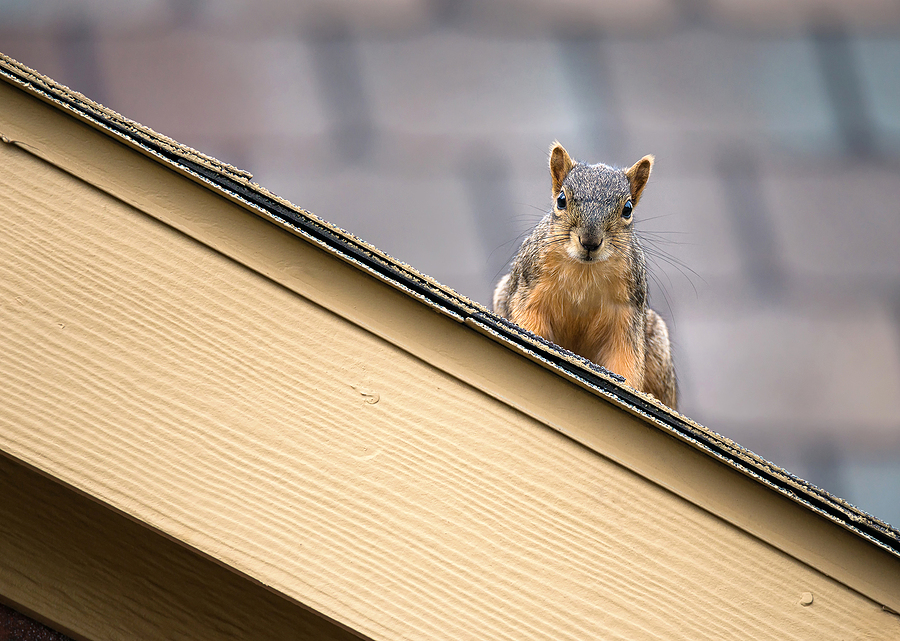Do you think your home may be infested with squirrels? If so, it’s important to identify the signs of a squirrel infestation as soon as possible. Squirrels can cause significant damage to your home and property if left unchecked for too long. They can chew through walls and electrical wires, contaminate food sources, and leave droppings throughout the attic or other parts of the house. By recognizing the signs of an infestation early on, you can take action right away to prevent any further damage from occurring in your home.
Continue scrolling down to learn some common indicators that you have a problem with squirrels in the attic or elsewhere on your property.

Top 4 Signs That Suggest Your Home Has a Squirrel Infestation
Noises: A surefire indication that there are squirrels living in or around your home is if you hear scratching, gnawing, or scampering noises coming from the walls or ceiling. This type of sound indicates that a squirrel (or multiple squirrels) have settled into your attic or other parts of the house.
Droppings: Another telltale sign of a squirrel infestation is droppings. Squirrels tend to leave behind droppings where they inhabit, and these can be found near food sources, nesting areas, and entry points throughout the house. By identifying these droppings, you can pinpoint exactly where the squirrels are living in your home.
Gnawed Holes: If you notice any unusual holes in your walls or ceiling, it’s a sure sign that you have an infestation. Squirrels are known to chew through wood and other materials in order to gain access to the attic or other parts of the home.
Structural Damage: In some cases, squirrels may cause significant damage to your home if they are allowed to remain unchecked for too long. They can chew through electrical wires, insulation, and ventilation systems, leading to expensive repairs down the line. If you notice any kind of structural damage in your home, it’s likely caused by squirrels and should be addressed right away.
Get Rid of Squirrels Today!
If you believe you have a squirrel infestation in your home, it’s important to take action quickly. Contact a professional squirrel removal service to get rid of the critters and prevent any further damage from occurring. They will be able to identify the entry points and set up traps to safely remove the squirrels from your home. Remember, with early detection and quick action, you can avoid costly repairs in the future!
Chipmunks in the Attic or Home
Your problem critters might just be chipmunks – not squirrels. The signs of a chipmunk infestation are quite similar to those of squirrel infestations. When chipmunks manage to make their way into an attic, it can spell disaster for homeowners. These critters are known for making a mess as they build nests and gnaw on stored items, wreaking havoc quickly in any space.
It is important to identify signs of chipmunk infestations early on in order to take the necessary steps towards chipmunk control. Knowing the common signs of having a chipmunk in the attic, such as noise coming from within and damage to insulation, will help to locate them and subsequently get them out of your home. Thankfully, there are a number of DIY approaches that can be taken when dealing with chipmunk infestations or if necessary professional services can be brought in to completely address the issue.
Ready to figure out what’s going on with the squirrels on or inside your property? Contact Modern Wildlife Control at 317-847-6409 for safe and effective animal removal and control in Indianapolis, Indiana for squirrels, chipmunks, and all other types of wildlife. Our wildlife removal services are humane, effective, and available for both residential and commercial clients.
Related Posts:
How to Protect Bird Feeders From Hungry Squirrels
Frequently Asked Questions About Squirrel Control
How Chipmunks Survive in the Winter
